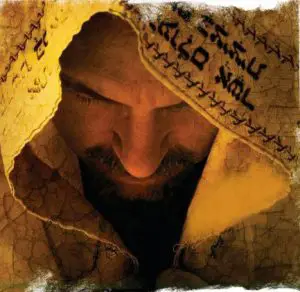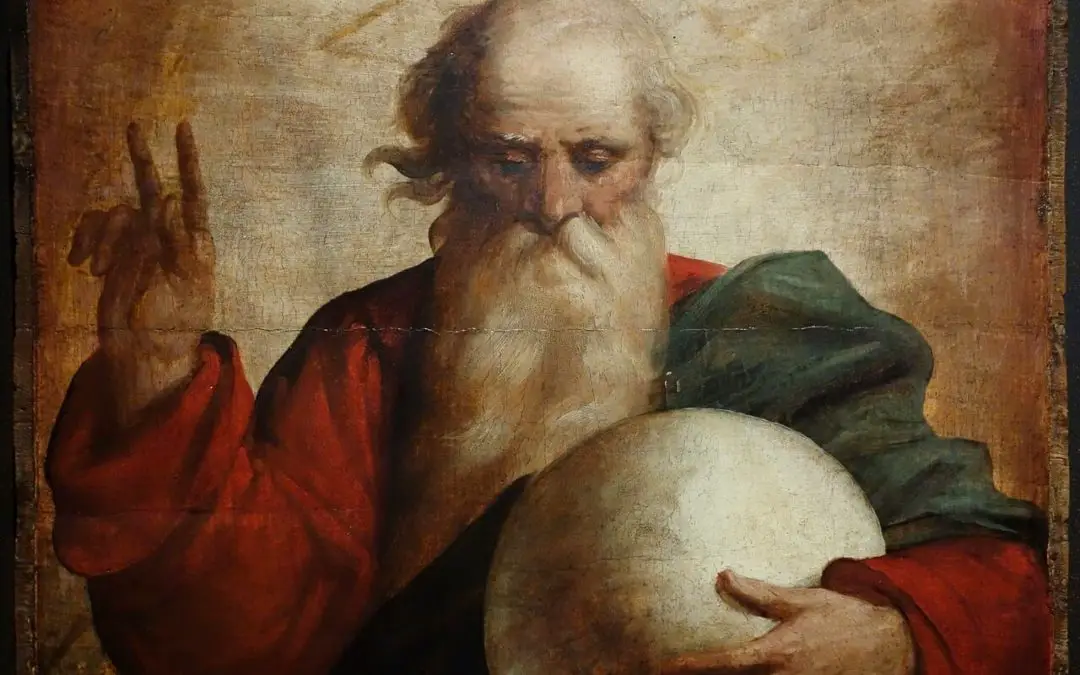Many Christians believe Jesus will rule the kingdom for all of eternity because he is God, and therefore, the kingdom inherently belongs to him. Scripture, on the other hand, reveals a different picture about the coming kingdom, who it belongs to, and the reason for Jesus’ rule.
The Kingdom Belongs to the Father
The Psalms often speak of God in terms of royalty:
Psalm 47:2 (NASB) For the LORD Most High is to be feared, a great King over all the earth.
Psalm 103:19 (NASB) The LORD has established His throne in the heavens, and His sovereignty rules over all.
As the sovereign, the kingdom belongs to God. But to which God? The Trinity? Not according to Jesus. In his instructional prayer, Jesus declared that the kingdom belongs to the Father:
Matthew 6:9-10 (NASB) “Pray, then, in this way: ‘Our Father who is in heaven, Hallowed be Your name. 10 ‘Your kingdom come. Your will be done, On earth as it is in heaven. (emphasis added)
In the same context, Jesus again identifies the kingdom as belonging to the Father, calling it His kingdom:
Matthew 6:33 (NASB) “But seek first His kingdom and His righteousness, and all these things will be added to you. (emphasis added)
Again, on another occasion, Jesus affirms that the kingdom is indeed the Father’s:
Matthew 26:29 (NASB) 29 “But I say to you, I will not drink of this fruit of the vine from now on until that day when I drink it new with you in My Father’s kingdom.” (emphasis added)
God Delegated Governance of the Kingdom
As king over all Creation, God chose to delegate the governance of His kingdom to mankind:
Genesis 1:26 and 28 (NASB) Then God said, “Let Us make man in Our image, according to Our likeness; and let them rule over the fish of the sea and over the birds of the sky and over the cattle and over all the earth, and over every creeping thing that creeps on the earth.”…28 God blessed them; and God said to them, “Be fruitful and multiply, and fill the earth, and subdue it; and rule over the fish of the sea and over the birds of the sky and over every living thing that moves on the earth.” (emphasis added)
 The word “rule” in this passage is radah in Hebrew, and it means: to have dominion.[1] From the beginning, God’s plan was for man to rule over the earth in His stead. Indeed, scholars view Adam as God’s royal agent who was sent to rule the earth, yet was to remain under God’s authority. The Wycliffe Bible Commentary speaks to this when it says:
The word “rule” in this passage is radah in Hebrew, and it means: to have dominion.[1] From the beginning, God’s plan was for man to rule over the earth in His stead. Indeed, scholars view Adam as God’s royal agent who was sent to rule the earth, yet was to remain under God’s authority. The Wycliffe Bible Commentary speaks to this when it says:
[Man] was to be God’s responsible representative and steward on earth, to work out his Creator’s will and fulfill the divine purpose. World dominion would be granted to this new creature….This sublime creature, with his unbelievable privileges and heavy responsibilities, was to live and move in a kingly fashion.[2]
The New Oxford Annotated Bible is in agreement that man’s role was to rule the earth as God’s representative:
Made in the image of God, man is the creature through whom God manifests his rule on the earth. The language reflects “royal theology” …As God’s representative, man is given dominion (Ps 8:6-8).[3] (emphasis added)
The Spirit Filled Bible also comments on man’s unique place as God’s agent in the earth:
God created man to be His kingdom agent, to rule and subdue the rest of creation, including the aggressive satanic forces, which would soon infringe upon it.[4] (emphasis added)
David, himself a king, expressed wonder and praise at this divine plan for mankind to rule on God’s behalf:
Psalm 8:4-9 (NASB) What is man that You take thought of him, and the son of man that You care for him? 5 Yet You have made him a little lower than God, and You crown him with glory and majesty! 6 You make him to rule over the works of Your hands; You have put all things under his feet, 7 All sheep and oxen, and also the beasts of the field, 8 The birds of the heavens and the fish of the sea, whatever passes through the paths of the seas. 9 O LORD [Yahweh], our Lord, How majestic is Your name in all the earth! (emphasis added)
Although Adam held a special place as ruler under the Most High, he disobeyed and was subsequently dethroned, if you will, and cast out of the Garden of Eden. His usurper, Satan, became the ruler or “god” of this world:[5]
1 John 5:19 (NASB) We know that we are of God, and that the whole world lies in the power of the evil one. (emphasis added)
But God did not abandon His plan for man to rule the earth on His behalf. After Adam’s fall, God foretold of another man, born of woman, who, though wounded by Satan, would ultimately defeat him.[6] Moreover, this man would be a descendant of King David,[7] and he would rule over the kingdom forever. Paul calls this man the last Adam,[8] but he is better known as Jesus of Nazareth, who is called the Christ. Christ and its equivalent, Messiah, means God’s anointed, a designation for the one chosen by God to rule over the coming kingdom.
Messiah will rule on God’s behalf
 God used the prophet Micah to foretell that, like the first Adam, the coming king would rule on God’s behalf:
God used the prophet Micah to foretell that, like the first Adam, the coming king would rule on God’s behalf:
Micah 5:2 (NASB) “But as for you, Bethlehem Ephrathah, too little to be among the clans of Judah, from you One will go forth for Me to be ruler in Israel. His goings forth are from long ago, from the days of eternity.”[9] (emphasis added)
Psalm 2 offers further powerful evidence that the Messiah would rule as God’s anointed king. Here, in part, is the prophecy that Peter said found its fulfillment in Jesus:[10]
Psalm 2:1-2, 6-8, 10-12 (NASB) Why are the nations in an uproar and the peoples devising a vain thing? 2 The kings of the earth take their stand and the rulers take counsel together against the LORD and against His Anointed…6 “But as for Me, I have installed My King Upon Zion, My holy mountain.” 7 “I will surely tell of the decree of the LORD: He said to Me, ‘You are My Son, Today I have begotten You. 8 ‘Ask of Me, and I will surely give the nations as Your inheritance, and the very ends of the earth as Your possession… 10 Now therefore, O kings, show discernment; Take warning, O judges of the earth. 11 Worship the LORD with reverence and rejoice with trembling. 12 Do homage to the Son, that He not become angry, and you perish in the way, for His wrath may soon be kindled. How blessed are all who take refuge in Him! (emphasis added)
Isaiah also spoke of the Messiah’s rulership under God’s authority. In the prophet’s famous passage on the suffering Messiah, he asks, “Who has believed our message? And to whom has the arm of the LORD been revealed?”[11] Isaiah uses the phrase “arm of the LORD” as a designation for the coming Messiah. It is this “arm of the LORD,” that will rule for God:
Isaiah 40:10 (NASB) Behold, the Lord GOD will come with might, with His arm ruling for Him. Behold, His reward is with Him and His recompense before Him. (emphasis added)
Ezekiel also depicts the coming king as one who will serve, not as God, but as God’s servant:
Ezekiel 34:23-25 (NASB) “Then I will set over them one shepherd, My servant David, and he will feed them; he will feed them himself and be their shepherd. 24 “And I, the LORD, will be their God, and My servant David will be prince among them; I the LORD have spoken. 25 “They will live on the land that I gave to Jacob My servant, in which your fathers lived; and they will live on it, they, and their sons and their sons’ sons, forever; and David My servant will be their prince forever. (emphasis added)
The name David is a metaphor for the coming Messiah. He will be their shepherd and prince, while Yahweh will be their God. Indeed, Jesus is the good shepherd and the servant of God[12] who was exalted to God’s right hand as Prince and Savior:
Acts 5:30-31 (NASB) “The God of our fathers raised up Jesus, whom you had put to death by hanging Him on a cross. 31 “He is the one whom God exalted to His right hand as a Prince and a Savior, to grant repentance to Israel, and forgiveness of sins. (emphasis added)
It is important to note that God appointed Jesus to this position; he wasn’t king until God designated him as one:
Psalm 89:27 (NASB) “I also shall make him My firstborn, the highest of the kings of the earth. (emphasis added)
 Orthodoxy, however, teaches that Jesus will rule the world, not because God appointed him, but because he is, himself, God. Some present the fact that both Jesus and God are called King of Kings and Lord of Lords[13] as proof of Jesus’ deity. However, those who make this claim seem unaware that the phrases are simply Hebraic superlatives that mean the greatest or the best. What’s more, their use is not restricted to deity but can be used for any great king. For example, King Artaxerxes of Persia, and King Nebuchadnezzar of Babylon, were both called “king of kings” because of their wealth, power, and expansive kingdoms. [14] How much more the Messiah!
Orthodoxy, however, teaches that Jesus will rule the world, not because God appointed him, but because he is, himself, God. Some present the fact that both Jesus and God are called King of Kings and Lord of Lords[13] as proof of Jesus’ deity. However, those who make this claim seem unaware that the phrases are simply Hebraic superlatives that mean the greatest or the best. What’s more, their use is not restricted to deity but can be used for any great king. For example, King Artaxerxes of Persia, and King Nebuchadnezzar of Babylon, were both called “king of kings” because of their wealth, power, and expansive kingdoms. [14] How much more the Messiah!
Others contend that Jesus must be God because only God can rule the world. Regrettably, this premise reveals a lack of understanding regarding God’s plan for man to rule the earth as His agents. Furthermore, it reflects a failure to take into account the totality of Scripture on the matter. For example, Paul writes that Jesus was exalted to this lofty position by God, not because he is himself, God, but because of his extreme obedience to his God:
Philippians 2:8-11 (NASB) Being found in appearance as a man[15], He humbled Himself by becoming obedient to the point of death, even death on a cross. 9 For this reason also, God highly exalted Him, and bestowed on Him the name which is above every name, 10 so that at the name of Jesus EVERY KNEE WILL BOW, of those who are in heaven and on earth and under the earth, 11 and that every tongue will confess that Jesus Christ is Lord, to the glory of God the Father. (emphasis added)
Paul penned a similar passage to the church in Ephesus:
…these are in accordance with the working of the strength of [God’s] might which He brought about in Christ, when He raised Him from the dead and seated Him at His right hand in the heavenly places, far above all rule and authority and power and dominion, and every name that is named, not only in this age but also in the one to come. And He put all things in subjection under His feet, and gave Him as head over all things to the church, which is His body, the fullness of Him who fills all in all.[16] (emphasis added)
Jesus was exalted by God and given the highest name, that is, the highest delegated authority. Indeed, Jesus acknowledges numerous times that his authority was given to him by God.[17] For example:
Matthew 11:27 (NASB) [Jesus said] “All things have been handed over to Me by My Father…
Matthew 28:18 [Jesus said] “All authority in heaven and earth has been given to me.
John 3:35 (NASB) “The Father loves the Son and has given all things into His hand.
And according to the Pauline passages cited earlier, it was God the Father who put all things in subjection to His Christ. In other words, there was a time when all things weren’t subjected to the man from Nazareth, but now they are.[18] Moreover, Jesus’ exaltation over all things is said to be to the glory of God the Father, not the Son. Why? Because it was all God’s doing. God chose Christ.[19] God anointed and authorized Christ.[20] God raised Christ from the dead.[21] God exalted Christ to His right hand[22] and subjected all things unto him.[23]
The very fact that Jesus was exalted by God to sit at his right hand, given the highest possible authority, and had all things put in subjection to him demonstrates Jesus’ humanity, not a fourth century, theorized deity. For if Jesus was truly God, he would already possess these things. It is nonsensical to say that God was exalted to a position and rank that he inherently holds. On the other hand, Paul’s inspired statements are in perfect keeping with God’s plan for a man to rule as His agent in the earth.
God gave Jesus the kingdom
That Jesus didn’t inherently posses the kingdom as God is further illustrated in Scripture. The prophet Daniel recorded a vision in which he saw the Son of Man presented before God and given dominion, glory, and a kingdom:
Daniel 7:13-14 (NASB) “I kept looking in the night visions, And behold, with the clouds of heaven One like a Son of Man was coming, And He came up to the Ancient of Days and was presented before Him. 14 “And to Him was given dominion, glory and a kingdom, that all the peoples, nations and men of every language might serve Him. His dominion is an everlasting dominion which will not pass away; and His kingdom is one which will not be destroyed. (emphasis added)
We see this prophecy repeated in Jesus’ birth narrative:
Luke 1:32 (NASB) “He will be great and will be called the Son of the Most High; and the Lord God will give Him the throne of His father David (emphasis added)
The phrase, “the throne of His father David” is indicative of the Messiah and the coming kingdom. Furthermore, Jesus himself, testifies that it was God the Father who granted him a kingdom:
Luke 22:28-30 (NASB) “You are those who have stood by Me in My trials; 29 and just as My Father has granted Me a kingdom, I grant you 30 that you may eat and drink at My table in My kingdom, and you will sit on thrones judging the twelve tribes of Israel. (emphasis added)
If Jesus is God, he would not need anyone to give him the kingdom, for the kingdom would be inherently his. But Jesus is the last Adam[24] who redeemed fallen mankind,[25] and for this reason, God subjected the kingdom to him.
In the Kingdom, the Son Remains Subordinate to the Father

Just as Adam was given dominion over the earth while still under the authority of God, Jesus likewise occupies a subordinate role in the kingdom:
1 Corinthians 15:23-28 (ESV) But each in his own order: Christ the firstfruits, then at his coming those who belong to Christ. 24Then comes the end, when he delivers the kingdom to God the Father after destroying every rule and every authority and power. 25For he [Christ] must reign until he has put all his enemies under his feet. 26The last enemy to be destroyed is death. 27For “God has put all things in subjection under his [Christ’s] feet.” But when it says, “all things are put in subjection,” it is plain that he [God the Father] is excepted who put all things in subjection under him. 28 When all things are subjected to him [God the Father], then the Son himself will also be subjected to him who put all things in subjection under him, that God may be all in all. (emphasis added)
Scripture plainly declares that the Son will remain subordinate to God in the coming kingdom. This should come as no surprise for Jesus said that the Father is greater than all,[26] even greater than himself:
John 14:28 (NASB) “You heard that I said to you, ‘I go away, and I will come to you.’ If you loved Me, you would have rejoiced because I go to the Father, for the Father is greater than I. (emphasis added)
These passages make no sense if Jesus is God, however, they become clear when we understand that Jesus is not God, but the Christ of God.
Jesus may rule as God’s agent, but ultimately, the kingdom belongs to God the Father.
The Father Will Give Us the Kingdom
Jesus, the last Adam, was faithful to God in every way. His obedience opened a way for us to return to the kingdom, not only as residents, but as a part of its governance:
Daniel 7:18 and 27 (NASB) ‘But the saints of the Highest One will receive the kingdom and possess the kingdom forever, for all ages to come.’…27 ‘Then the sovereignty, the dominion and the greatness of all the kingdoms under the whole heaven will be given to the people of the saints of the Highest One; His kingdom will be an everlasting kingdom, and all the dominions will serve and obey Him.’ (emphasis added)
Luke 12:32 (NASB) “Do not be afraid, little flock, for your Father has chosen gladly to give you the kingdom. (emphasis added)
Luke 22:28-30 (NASB) “You are those who have stood by Me in My trials; 29 and just as My Father has granted Me a kingdom, I grant you30 that you may eat and drink at My table in My kingdom, and you will sit on thrones judging the twelve tribes of Israel. (emphasis added)
Revelation 3:21 (NASB) ‘He who overcomes, I will grant to him to sit down with Me on My throne, as I also overcame and sat down with My Father on His throne. (emphasis added)
If, as some attempt to reason, rulership in the coming kingdom identifies one as being deity, then you and I can be called God, as well. But Scripture testifies that shared governance is not an indicator of having a shared God-essence. Rather, it is evidence that God has kept His promise for man to rule in His glorious kingdom. Therefore, let us join our king in praying, “Father, may Your kingdom come!”[27]
[1] New American Exhaustive Concordance of the Bible, #7282a radah.
[2] The Wycliffe Bible Commentary, Charles F. Pfeiffer, ed., (Chicago, IL; Moody Press, 1962), p. 4.
[3] The New Oxford Annotated Bible (RSV), (Oxford University Press,1977), p. 2-3.
[4] The Spirit Filled Bible (NKJV), Jack W. Hayford, ed., (Nashville, TN: Thomas Nelson, 1991), p. 5.
[5] 2 Corinthians 4:4. See also: John 14:30, 16:11; 1 John 4:4; 5:19; Ephesians 2:2, 6:12; John 17:15
[6] Genesis 3:15; John 12:31.
[7] Acts 2:29-32; Luke 1:33, etc.
[8] 1 Corinthians 15:45; Romans 5:14.
[9] Some interpret this passage to mean that Jesus pre-existed in heaven as God. However, the phrase “His goings forth are from long ago, from the days of eternity,” indicates that the human leader was a part of God’s plan from before the foundation of the world, not that Jesus literally pre-existed. See also Acts 2:23; 1 Peter 1:20; Revelation 13:8.
[12] John 10:10, 14; Acts 3:26; 4:27, 30.
[13] Jesus: Revelation 17:14; 19:6. God: Deuteronomy 10:17; Psalm 47:2; 136:3; 1 Timothy 6:15.
[14] Ezra 7:12; Ezekiel 26:7; Daniel 2:37.
[15] Jesus humbled himself and became a bond-servant, appearing to be like any other man (Isaiah 53:2) instead of the one God anointed to be King.
[16] Ephesians 1:19-23.
[17] See also John 5:26-27; John 17:2; Revelation 2:26-27.
[18] 1 Peter 3:22.
[19] Luke 9:35; 23:35; Matthew 12:18; Isaiah 42:1.
[20] Acts 10:38; Matthew 11:27; 28:18; John 3:35. See also, footnote 16.
[21] Galatians 1:1; Acts 2:24. See the link for additional references.
[22] Acts 2:33; 5:31; 7:55-56; Mark 16:19; Luke 22:69, etc.
[23] 1 Corinthians 15:27-28; Ephesians 1:19-22; Philippians 2:9;1 Peter 3:22; Hebrews 2:8, etc.
[24] 1 Corinthians 15:45; Romans 5:14.
[25] 1 Peter 1:18-21.
[26] John 10:29.
[27] Matthew 6:10.




Thanks for all the hard work in producing and sharing life saving facts
Thanks David for your encouragement!
Thanks. May God continue to bless you